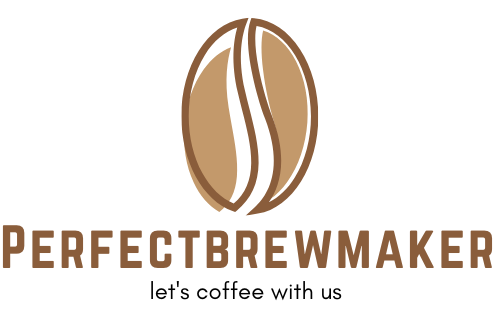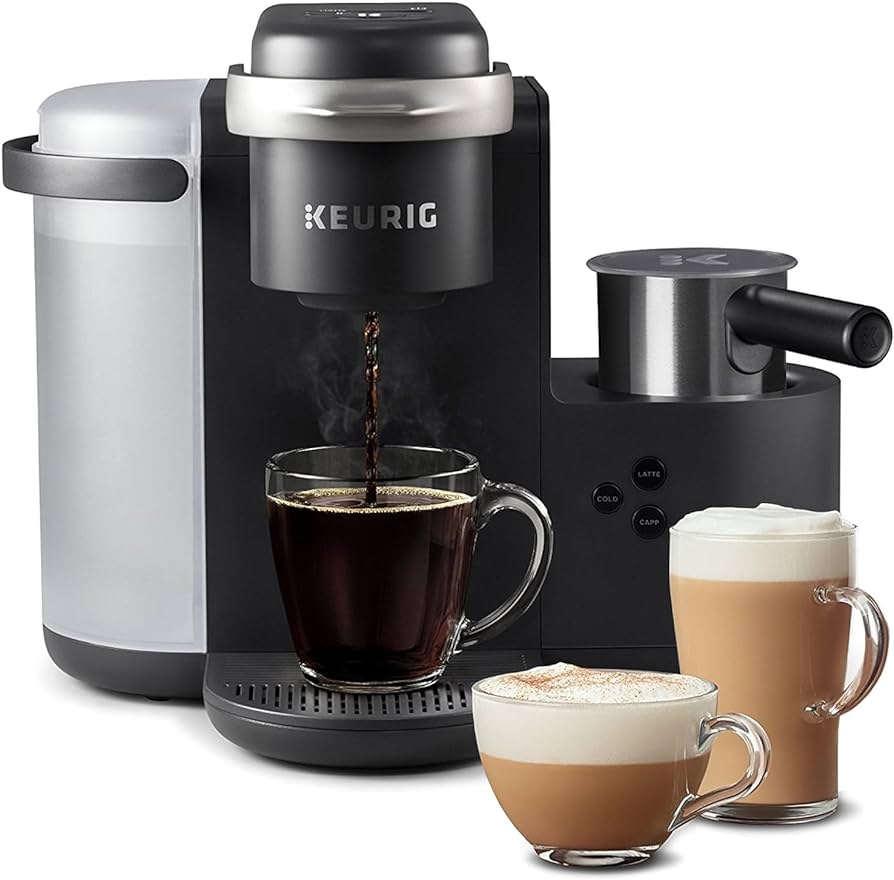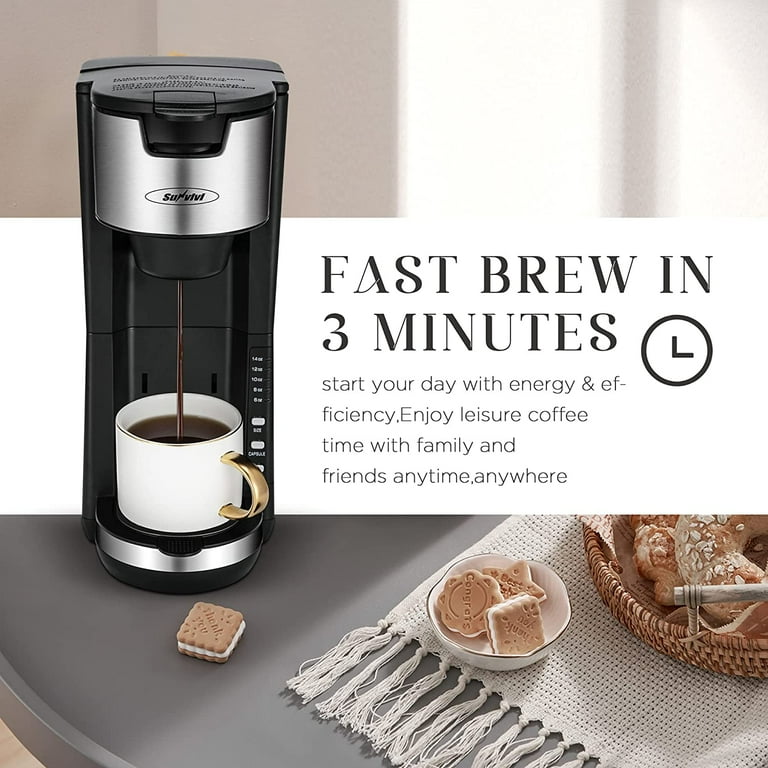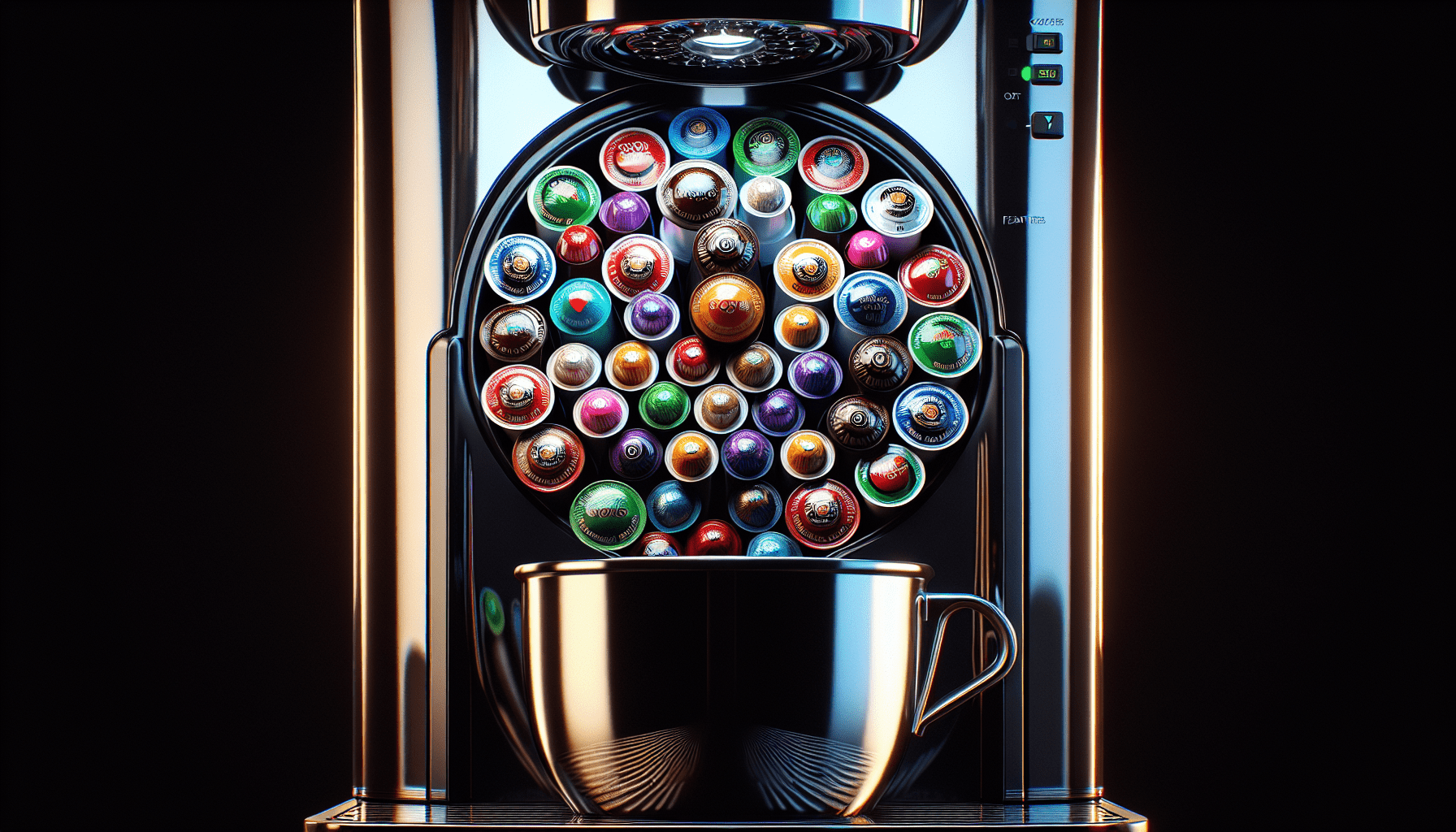If you’re a coffee lover who enjoys the convenience of K-cup coffee makers, you may have wondered about the safety of these popular machines. In this article, we’ll explore the question of whether K-cup coffee makers are BPA-free. BPA, or bisphenol A, is a chemical commonly used in the production of plastic products. So, let’s find out if your beloved morning brew is being brewed in a safe and BPA-free manner.
Introduction
What are K-cup coffee makers?
K-cup coffee makers are convenient and popular coffee brewing machines that use single-serving pods to make a cup of coffee. With a K-cup coffee maker, you can quickly brew a fresh cup of coffee without the hassle of grinding beans or measuring coffee grounds. These machines are loved for their ease of use and wide variety of coffee flavors and types available in pod form.
What is BPA?
BPA, also known as Bisphenol A, is an industrial chemical used in the production of certain plastics and resins. It is commonly found in food and beverage containers, including plastic water bottles and the linings of metal cans. BPA can leach into the contents of these containers, especially when they are heated or exposed to acidic substances. Concerns about BPA arise from its potential adverse health effects on humans.
Why is BPA a concern in coffee makers?
BPA is a concern in coffee makers because it is often present in the plastic components of the machines, including the water reservoirs, coffee pod holders, and brewing chambers. When hot water comes into contact with these plastic parts, there is a possibility of BPA leaching into the coffee. This is particularly alarming because BPA has been linked to various health risks, such as hormone disruption, reproductive issues, and certain types of cancers. Given the widespread use of K-cup coffee makers, understanding their BPA content is crucial for those concerned about their overall well-being.
Understanding BPA
What is BPA?
Bisphenol A, commonly referred to as BPA, is a chemical compound used in the manufacturing of plastics and resins. It is primarily utilized to create durable and shatter-resistant plastics, and it can be found in a variety of products ranging from water bottles to food containers. BPA is also employed in the production of epoxy resins, which are used as protective linings on the inside of metal cans.
Health concerns associated with BPA
There is ongoing debate and scientific research regarding the potential health effects of BPA exposure. Some studies suggest that exposure to BPA may lead to hormone disruption, fertility problems, developmental issues in children, and an increased risk of certain cancers. While the exact impact of BPA on human health is still being explored, many individuals choose to err on the side of caution and limit their exposure to this chemical.
Regulations on BPA usage
In response to concerns about BPA, several regulatory agencies and governments have taken action to limit its usage. For example, the United States Food and Drug Administration (FDA) banned the use of BPA in baby bottles and sippy cups in 2012. Additionally, the European Union has implemented strict regulations on the use of BPA in certain products, including baby bottles. These actions reflect a growing recognition of the potential risks associated with BPA exposure.
K-cup Coffee Makers and BPA
Materials used in K-cup coffee makers
K-cup coffee makers typically consist of various materials, including plastic, metal, and rubber components. The plastic parts can include the water reservoir, pod holder, drip tray, and exterior housing. While plastic is commonly used in these machines due to its durability and cost-effectiveness, it is important to determine if the plastic used contains BPA.
Common BPA-free materials in coffee makers
To address the concerns about BPA, many manufacturers have started using alternative materials in the production of coffee makers. Some common BPA-free materials used include BPA-free plastics, stainless steel, ceramic, and glass. These materials provide safer alternatives while still maintaining the functionality and durability of the coffee maker.
BPA-free claims by manufacturers
When shopping for a K-cup coffee maker, it is essential to look for manufacturers who explicitly state that their products are BPA-free. Reputable companies will often advertise this feature prominently, assuring consumers that their coffee makers do not contain BPA. It is worth noting that relying solely on the manufacturer’s claim may not always be sufficient, so further research and confirmation are recommended.
Are K-cup Coffee Makers BPA-free?
Determining if a K-cup coffee maker is BPA-free
Although identifying whether a specific K-cup coffee maker is BPA-free may require some effort, it can be done with the right information. Start by checking the product labeling and packaging for any BPA-free claims. Additionally, research the manufacturer’s website or contact their customer service to verify the materials used in the coffee maker.
Checking the product labeling
Manufacturers often include BPA-free labeling on the packaging or product itself to give consumers peace of mind. Look for phrases like “BPA-free” or “Contains no BPA” when examining the packaging or product description. These indicators can be helpful in making an informed decision about the safety of the coffee maker.
Researching the manufacturer’s information
If you are unable to find clear labeling on the packaging, it is recommended to conduct further research on the manufacturer’s website. Reputable companies will often provide detailed product information, including material composition. Look for statements guaranteeing that their coffee makers do not contain BPA or indicating the specific materials used.
Alternatives to K-cup Coffee Makers
Manual pour-over coffee makers
For those looking to avoid the potential risks associated with plastic and BPA, manual pour-over coffee makers are a popular alternative. These devices, such as the Hario V60 or Chemex, consist of a glass or ceramic cone that holds a paper filter. By manually pouring hot water over the coffee grounds, you have control over the brewing process and can ensure a BPA-free brewing experience.
French press coffee makers
French press coffee makers have gained popularity in recent years due to their simplicity and ability to brew a rich and full-bodied cup of coffee. These devices, typically made of glass or stainless steel, consist of a cylindrical vessel with a plunging mechanism and a metal mesh filter. With a French press, there is no risk of BPA exposure, as the coffee is brewed without the use of plastic parts.
Single-serve podless coffee makers
Single-serve podless coffee makers, such as AeroPress or Nespresso VertuoLine, provide a convenient alternative to K-cup coffee makers while avoiding the use of plastic pods. These machines use ground coffee or pre-filled capsules, and they often feature BPA-free plastic or stainless steel components. By investing in a podless coffee maker, you can enjoy the convenience of single-serve brewing without the potential health risks associated with BPA.
Benefits of BPA-free Coffee Makers
Reduced health risks
By opting for BPA-free coffee makers, you can minimize your potential exposure to harmful chemicals. Avoiding BPA can contribute to maintaining a healthy hormone balance and reduce the risk of reproductive issues, developmental problems, and certain types of cancers. Choosing BPA-free coffee makers is a proactive step in prioritizing your well-being.
Environmentally friendly
BPA-free coffee makers are often made from materials that are more environmentally friendly than traditional plastics. For example, opting for stainless steel or glass coffee makers reduces your reliance on plastic production and disposal. By choosing sustainable materials, you can contribute to a healthier planet and minimize your environmental impact.
Improved taste and quality of coffee
BPA-free coffee makers can significantly impact the taste and quality of your brewed coffee. When coffee comes into contact with BPA, it may result in a subtle change in flavor that affects the overall taste experience. By utilizing BPA-free materials, you can enjoy a purer and cleaner coffee flavor, allowing you to fully appreciate the nuances and richness of your favorite brews.
Popular BPA-free K-cup Coffee Makers
Brand A – Model X
Brand A offers a BPA-free K-cup coffee maker, Model X, which features a sleek design and user-friendly operation. Made from high-quality stainless steel and plastic-free materials, this coffee maker ensures a safe and enjoyable brewing experience. With a wide range of customizable brewing options, Brand A’s Model X caters to coffee enthusiasts who value both convenience and peace of mind.
Brand B – Model Y
Brand B has developed the BPA-free Model Y, a robust K-cup coffee maker with impressive brewing capabilities. Constructed with BPA-free plastics and stainless steel components, this coffee maker not only prioritizes your health but also guarantees durability and longevity. With its modern design and versatility, Brand B’s Model Y provides a safe and reliable brewing option for discerning coffee lovers.
Brand C – Model Z
Brand C’s Model Z is another top contender in the market for BPA-free K-cup coffee makers. Offering an elegant design and advanced brewing technology, this coffee maker ensures a consistently smooth and flavorful cup of coffee. Manufactured with BPA-free plastics and high-quality materials, Brand C’s Model Z is a reliable choice for those seeking a safe and efficient coffee brewing experience.
Tips for BPA-free Brewing
Using BPA-free coffee pods
In addition to selecting a BPA-free coffee maker, it is important to consider the pods or capsules used in the brewing process. Opt for BPA-free coffee pods to ensure that you are enjoying a truly BPA-free cup of coffee. Several reputable coffee brands now offer BPA-free options, allowing you to indulge in your favorite blends without compromising your health.
Avoiding plastic components in accessories
When complementing your BPA-free coffee maker with accessories, such as travel mugs or storage containers, choose those made from BPA-free materials. Many options, like stainless steel or glass containers, are available to ensure that your coffee remains free from any potential BPA contamination.
Proper cleaning and maintenance
Regularly clean and maintain your BPA-free coffee maker to ensure its longevity and optimal performance. Follow the manufacturer’s instructions for cleaning and descaling to prevent any buildup of coffee residue or mineral deposits. By keeping your coffee maker clean, you can ensure that your brews remain pure and free from unwanted contaminants.
Conclusion
Importance of choosing BPA-free coffee makers
Making a well-informed decision when selecting a coffee maker is crucial, especially when it comes to BPA content. Considering the potential health risks associated with BPA, opting for BPA-free coffee makers offers peace of mind and contributes to a healthier lifestyle.
Making a well-informed decision
When researching and purchasing a K-cup coffee maker, take the time to verify its BPA status through product labeling and manufacturer information. Consider the use of alternative brewing methods, such as manual pour-over or French press, if avoiding BPA is a top priority for you. Remember that by choosing BPA-free coffee makers and accessories, you can create a safer and more enjoyable coffee brewing experience.
References
- Environmental Protection Agency. (2021). Bisphenol A (BPA) Action Plan. Retrieved from https://www.epa.gov/assessing-and-managing-chemicals-under-tsca/bisphenol-bpa-action-plan
- Food and Drug Administration. (2021). U.S. Food and Drug Administration. Retrieved from https://www.fda.gov
- Mayo Clinic. (2021). Bisphenol A (BPA): Research and Regulation. Retrieved from https://www.mayoclinic.org/healthy-lifestyle/nutrition-and-healthy-eating/expert-answers/bpa/faq-20058331
- United States Environmental Protection Agency. (2021). Learn about BPA. Retrieved from https://www.epa.gov/bisphenol-a-bpa



